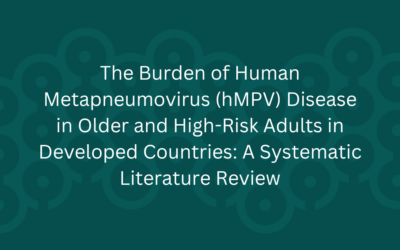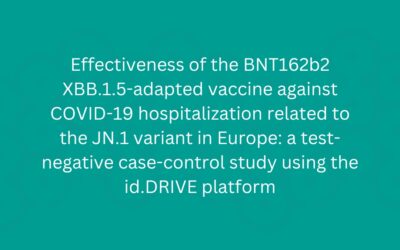Summary
Background
Vaccine effectiveness (VE) studies with long-term follow-up are needed to understand durability of protection against severe COVID-19 outcomes conferred by primary-series vaccination in individuals not receiving boosters. COVIDRIVE is a European public-private partnership evaluating brand-specific vaccine effectiveness (VE). We report a prespecified interim analysis of primary-series AZD1222 (ChAdOx1 nCoV-19) vaccine effectivness.
Methods
Seven Study Contributors in Europe collected data on individuals aged ≥18 years who were hospitalised with severe acute respiratory infection (June 1st, 2021–September 5th, 2022) and eligible for COVID-19 vaccination prior to hospitalisation. In this test-negative case–control study, individuals were defined as test-positive cases or test-negative controls (SARS-CoV-2 RT-PCR) and were either fully vaccinated (two AZD1222 doses, 4–12 weeks apart, completed ≥14 days prior to symptom onset; no booster doses) or unvaccinated (no COVID-19 vaccine prior to hospitalisation). The primary objective was to estimate AZD1222 VE against COVID-19 hospitalisation. A literature review and meta-regression were conducted to contextualise findings on durability of protection.
Findings
761 individuals were included during the 15-month analysis period. Overall AZD1222 vaccine effectiveness estimate was 72.8% (95% CI, 53.4–84.1). VE was 93.8% (48.6–99.3) in participants who received second AZD1222 doses ≤8 weeks prior to hospitalisation, with spline-based VE estimates demonstrating protection (VE ≥ 50%) 30 weeks post-second dose. Meta-regression analysis (data from seven publications) showed consistent results, with ≥80% protection against COVID-19 hospitalisation through ∼43 weeks post-second dose, with some degree of waning.
Interpretation
Primary-series AZD1222 vaccination confers protection against COVID-19 hospitalisation with enduring levels of VE through ≥6 months.
Funding
AstraZeneca.
Authors
Wilhelmine Meeraus ∙ Leonie de Munter ∙ Christen M. Grayc ∙ Akshat Dwivedi ∙ Chloé Wyndham-Thomas ∙ Mario Ouwens ∙ Wendy Hartig-Merkel ∙ Laura Drikite ∙ Griet Rebry ∙ Antonio Carmona ∙ Anke L. Stuurman ∙ Thi Yen Chi Nguyen ∙ Guillermo Mena ∙ Ainara Mira-Iglesias ∙ Giancarlo Icardi ∙ Susana Otero-Romero ∙ Sebastian Baumgartner ∙ Charlotte Martin ∙ Sylvia Taylor ∙ Kaatje Bollaerts






0 Comments